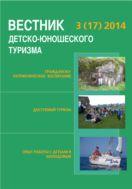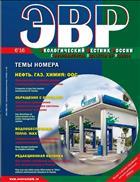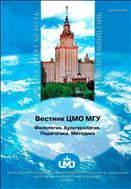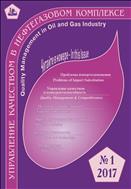Knowledge Production and Learning for Sustainable Forest Landscapes: The European Continent’s West and East as a Laboratory = Получение новых знаний и обучение в сфере устойчивых лесных ландшафтов: запад и восток Европы как лабораторияKnowledge Production and Learning for Sustainable Forest Landscapes: The European Continent’s West and East as a Laboratory = Получение новых знаний и обучение в сфере устойчивых лесных ландшафтов: запад и восток Европы как лаборатория 
To support human well-being, green (or ecological) infrastructure policy stresses the need to sustain functional networks of representative terrestrial and aquatic ecosystems for the sustainable provision of multiple ecosystem services. Implementing this means that the complexity of interactions between social and ecological systems at multiple spatial scales and levels of governance needs to be understood. Place-based knowledge production and learn-ing through integration of different research disciplines in collaboration with actors and stakeholders (i.e. transdisciplinary research) is a key feature to achieve this goal. Using a suite of local landscapes and regions on the European continent’s West and East as a laboratory, we developed and applied a stepwise approach to produce knowledge and encourage learning towards functional green infrastructures. Our diagnoses of forest landscapes show that the functionality for wood production and biodiversity conservation was inversely related in the gradient from long to short forest management histories. In Europe’s West there is a need for increased quantity of, and more functional, protected areas; diversification of management methods; and landscape restoration. In NW Russia there are opportunities to intensify forest management, and to continue the land-sparing approach with zoning for different functions, thus reducing biodiversity loss. Examples of diagnoses of social systems included the evaluation of comprehensive planning in Sweden, outcomes for biodiversity conservation of forest certification in Lithuania, and learning from environmental managers. We conclude that the main challenge for securing functional green infrastructure is poor cross-sectoral integration. Treatment of social-ecological systems requires knowledge-based collaboration and learning. The diversity of landscape histories and governance legacies on the European continent’s West and East, including Russia, offers grand opportunities for both knowledge production about performance targets for green infrastructure functionality, as well as learning to adapt governance and management to regional contexts. Integrating project funding for both researchers and stakeholder collaboration is a necessary strategy to fill the transdisciplinary research agenda. However, formal and informal disciplinary and administrative barriers can limit team building despite self-reflection and experience. Итого: 0.00руб. Электронное издание «Knowledge Production and Learning for Sustainable Forest Landscapes: The European Continent’s West and East as a Laboratory = Получение новых знаний и обучение в сфере устойчивых лесных ландшафтов: запад и восток Европы как лаборатория» (бесплатно). Скачать номера в формате PDF. |

































